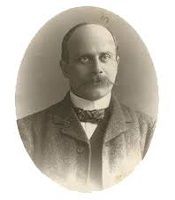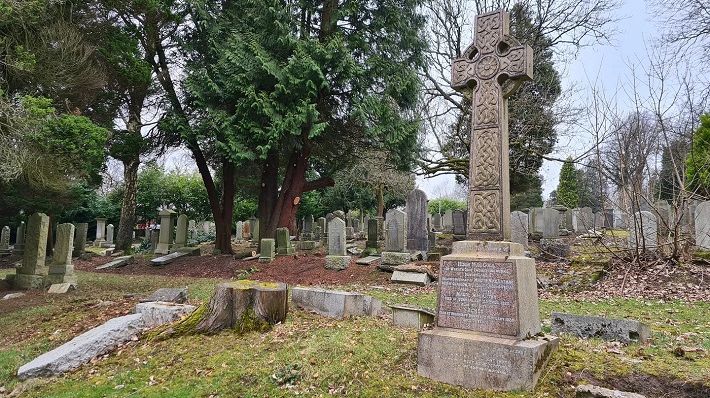Hugh M(a)cColl

The first officially recognised Association football game played in Spain took place on 8th March 1890. The location is said to have been close to to Calle Sanz across the River Guadalquivir from the city itself on La Tablada. The away team was Recreativo de Huelva and the home one, not Sevilla F.C. as claimed by the present club, it actually being formed a decade and a half later, but Seville Football Club, based largely on the city's British community.
The new club's first President was Edward Farquharson Johnston, who was British vice-consul in the city having arrived there two decades earlier. Its Secretary was Isaiah White Jnr., whose father owned the Portilo White foundry again in the city and its playing captain was Hugh McColl or, as he was buried, MacColl, an engineer, the technical manager, working at said foundry.
Farquharson, from Elgin, was thirty-five at the time of the formation, too old to play but not to referee. M(a)cColl was twenty-nine, born in 1861 on the border between Tradeston and The Gorbals in Glasgow and a right-back. His father, also Hugh, was a successful clothier and, as a chid, the family moved to Pollokshields. At nineteen and still there in 1881 Hugh Jnr. was an Apprentice Marine Engineer (with Napiers), having been raised within a mile of both Maxwell and Queen's Parks as the passion for football had already taken hold of South Glasgow and beyond. He is said to have then worked for Cunard before joining Howden in Glasgow as chief draughtsman.
How and when M(a)cColl, known in Spain and for the rest of his life as Hugo, arrived in Seville is unknown. It may have been in 1889 as he is said to have spent six years in the city. However what is known is that he played for three successive three seasons in the Seville-Huelva fixture. It was also in Seville that he met fellow Scot, Gilbert Reid Pollock, who in the second game against the same close Andalusian rivals was in the Seville team and is credited with scoring the first ever, recorded away goal in Spain. And it was these two who became business partners, not in Scotland but in Sunderland. There in 1895 M(a)cColl had set up as a builder and repairer of marine engines and boilers with a John Jamieson. But Jamieson would die the following year and Pollock would step into his shoes, the two creating what was a decade later a substantial concern. At its peak McColl and Pollock would employ about 500 men.

By then Hugo M(a)cColl had married, in 1901 at forty to a Newcastle lass, Maude McCarthy, and two sons, Hugh and James, later a barrister, were born in 1902 and 1908. And they on their father's death in 1915, aged just fifty-four, and his wife on hers in 1920 would from the business be left substantial sums. But the Spanish footballing M(a)cColl's passing would be neither in Sunderland or, indeed, Newcastle. It would on a trip back home be in Glasgow, in the Central Station Hotel. Nor would his final resting-place be in England but in Cathcart Cemetery, just three miles from where he had grown up.
Birth Locator:
30, South Apsley Place, Tradeston, Glasgow
Residence Locator(s):
1871 - Auburn Cottage, St. Andrews Road, Glasgow
1881 - 10, Kenmure St., Glasgow
1915 - 1, The Elms North, Sunderland
Grave Locator:
Back to the Spanish Trail,
or the SFHG Home page